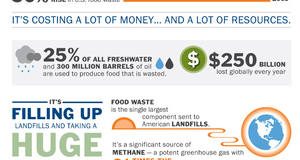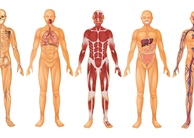Featured Opinion:Asceticism in the Modern World: The Religion of Self-DeprivationWho Killed the Carnivore?: Vegetarianism and VeganismThe next set of ascetic patterns I wish to explore exist within the ever-growing culture of the herbivore; vegetarians and vegans. In particular, why there has been an exponential rise in such diets, and whether we can call it asceticism at all. For the sake of clarity, a vegetarian is one who consumes animal products such as cheese and eggs, but will not touch the flesh; a vegan refuses all animal produce, including items that are sourced from animal skins or by-products. Vegetarianism as we know it today emerged in the late nineteenth century, where it was predominantly practiced by the post-Protestant, European population. Although the term itself was birthed from modernity, the practice actually originated long before Christianity, with the Pagans of antiquity and their teachings on the value of self-control in the consumption of the creatures of Mother Earth.Vegetarian living as a whole echoes principles of purity, ecology and denial as positivity, although some traditions differ slightly from place to place. Whilst Britain and the United States promote animal welfare through their diets, Europeans tend to practice such self-denial for health reasons. Relatedly, the rise in vegetarianism could be explained by both our interest in, and knowledge of, health and its bodily effects. Abstaining from animal products was also part of medieval fasting practice, tied to the cycle of the church’s year and week. It reinforced a monastic hierarchy, with monks adopting strict regimes, and the most severe, such as the Benedictine sect, adopting even more austere varieties. We could compare such a hierarchy with the one that exists between the various off-sets of vegetarianism; vegans, fruitarians, pescatarians and the like. And just as the medieval practices held connections between animal flesh and carnality, today vegetarians discard the sexual element, instead linking meat with literal aggression. But can we still talk of vegetarianism as an ascetic practice? Before, vegetarianism was a distinctive practice that separated individuals from the masses. Through this, it reinforced the idea of a holy community that had pioneered its own path of asceticism. Today is different. Modern vegetarianism presents such a diet, not necessarily as abstinence, but as something bursting with purificatory benefits. It is also not exclusive; a growing number adhere to its practices, pushing vegetarianism towards the norm, rather than the select-few. A statistic suggesting what many have been thinking: who killed the carnivore? However, despite its popularity, vegetarianism is still a form of abstinence and does have its own secular element of moral redemption. Vegetarian food is seen as fresher, lighter and purer, but something accessible to everyone. The redemptive merits are not confined to a holy elite, the pious prodigies, nor are they controlled by fast and feast. It thus contains aspects of traditional asceticism, but within a modernist construct of values. Grummet interestingly expresses, in his work Food and Theology, to take abstention in the form of vegetarianism seriously is to challenge the logic of consumption: if we have enough to live on, why take more? This is something that seems to parallel medieval ideas of asceticism. It also seems an alienating statement for the carnivorous population, who have become increasingly hostile towards ‘veg-indoctrination’16. A Hedonistic AsceticismIt seems that today, we not only find pleasure in asceticism, but revel in its immoderation. Ascetic desire is built up as an excuse for the pleasure of pain. Nietzsche himself saw such practice as a ‘savage form of enjoyment’17. The ascetic pleasure is the pleasure of the modernist, a pleasure in transformation, an arrogance that expresses a will so absolutely set upon its goal, a goal so impossible that to pursue it takes arrogance and humility in their extreme forms at once – a goal that is impossible for the ascetic not to pursue18. Hedonism and asceticism are equally arrogant in their own rights, through the total disregard of society’s warnings; the worth of one’s own pleasures, or pain, is greater than anything else. Hence, ‘hedonistic asceticism’ seems the perfect term for the practices we have been discussing. Anorexics take pleasure in the pain their extreme malnourishment causes on their bodies; they are hurting from the self-abuse, but unfathomably happy with the control they have. Serial dieters resent abstaining from their favourite foods, but relish in the power of their new-found confidence. Even the vegetarians revel in the lightness, and the purity of their selves, ignoring the pain that comes with weakness through iron deficiency or hostility from the carnivorous. We should face the facts: modernity has upgraded asceticism just as it does with technology. Why belong to one school of thought, when you can have two? It certainly looks like the hedonistic ascetic is here to stay.Continued on Next Page » Suggested Reading from Inquiries Journal
Inquiries Journal provides undergraduate and graduate students around the world a platform for the wide dissemination of academic work over a range of core disciplines. Representing the work of students from hundreds of institutions around the globe, Inquiries Journal's large database of academic articles is completely free. Learn more | Blog | Submit Latest in Opinion |
















